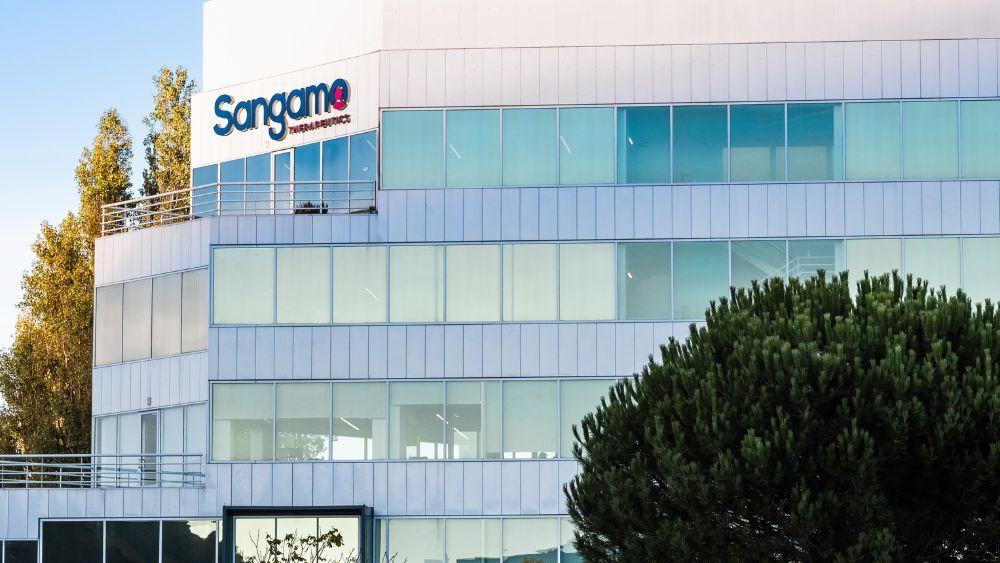Annexon Biosciences announced encouraging results from a Phase 1b dose-ranging clinical trial to evaluate its anti-C1q antibody, ANX005.
- ANX005 was well-tolerated and achieved full C1q target engagement
- Annexon plans to advance the clinical development of ANX005 for the treatment of GBS
SOUTH SAN FRANCISCO, Calif.--(BUSINESS WIRE)-- Annexon Biosciences, a clinical-stage biopharmaceutical company developing a pipeline of novel therapies for patients with classical complement-mediated disorders of the body, eye and brain, today announced encouraging results from a Phase 1b dose-ranging clinical trial to evaluate its anti-C1q antibody, ANX005. The trial was conducted in patients with Guillain-Barré Syndrome (GBS), a rare, acute, antibody-mediated autoimmune disease that impacts the peripheral nervous system, and for which there are no approved therapies in the United States. ANX005 is an investigational monoclonal antibody designed to block C1q and activation of the classical complement cascade. For GBS patients, ANX005 is designed to act early in the disease course to prevent nerve damage and irreversible neurological disability.
“We are very pleased by the tolerability profile, pharmacokinetic and biomarker activity observed in our Phase 1b trial in GBS patients. In addition, although the trial was not statistically powered for efficacy, we were encouraged by the positive trends observed across key GBS outcome measures,” said Sanjay Keswani, MBBS, BSc, FRCP, chief medical officer of Annexon. “Based on these promising results, we look forward to advancing ANX005 into later-stage clinical trials. We are committed to advancing ANX005 as a differentiated treatment option for patients suffering from the debilitating impact of GBS.”
Phase 1b Clinical Trial of ANX005 in Guillain-Barré Syndrome
A Phase 1b placebo controlled, dose escalation trial of ANX005 was conducted in 31 patients with Guillain-Barré syndrome (GBS). The trial objectives included safety and tolerability, dosing levels, and target engagement, with a follow up of 8 weeks. Top-line results from this trial included:
- ANX005 was well-tolerated at all dose levels and no drug-related serious adverse events or drug-related discontinuations occurred.
- Infusion of ANX005 resulted in full and prolonged C1q engagement and classical cascade inhibition, measured in the blood and cerebrospinal fluid (CSF).
- Patients treated with ANX005 showed significantly reduced levels of neurofilament light chain (NfL), a well-accepted marker of nerve damage in neurodegenerative disease that has been shown to correlate with disease severity and clinical outcomes.
- Patients treated with ANX005 also demonstrated consistent positive trends across key GBS outcome measures, including an early impact on muscle strength, which correlates with prognosis for long-term functional recovery.
About ANX005
ANX005 is a clinical-stage investigational monoclonal antibody intended to treat patients suffering from autoimmune and neurodegenerative disorders. This novel therapy is formulated for intravenous administration and is designed to inhibit C1q and the entire classical complement pathway. Annexon has completed a Phase 1b clinical trial of ANX005 and plans to advance ANX005 into later-stage clinical trials in Guillain-Barré Syndrome (GBS). ANX005 has received both Fast Track and Orphan Drug designations from the U.S. Food and Drug Administration for the treatment of GBS. Beyond GBS, Annexon plans to develop ANX005 for additional autoimmune and neurodegenerative diseases.
About Guillain-Barré Syndrome
Guillain-Barré syndrome (GBS) is a rare, acute autoimmune disease in which the body’s immune system mistakenly attacks part of its peripheral nervous system. GBS is typically triggered by a preceding infection and usually involves rapidly progressive weakness in the limbs that may culminate within four weeks to widespread peripheral nerve damage and paralysis. In 2011, GBS was estimated to affect 0.8 to 1.9 per 100,000 persons in North America and Europe annually. There is no known cure for GBS, and there are no approved therapies for GBS in the United States. Despite the utilization of Plasmapheresis (also known as plasma exchange) and high-dose immunoglobulin therapy (IVIg), many patients are left with residual neurological disability, accompanied by chronic pain and fatigue.
About Annexon Biosciences
Annexon is a clinical-stage biopharmaceutical company developing a pipeline of novel therapies for patients with classical complement-mediated disorders of the body, eye and brain. The Company’s pipeline is based on its platform technology addressing well-researched classical complement-mediated autoimmune and neurodegenerative disease processes, both of which are triggered by aberrant activation of C1q, the initiating molecule of the classical complement pathway. The Company’s first product candidate, ANX005, is a full-length monoclonal antibody formulated for intravenous administration in autoimmune and neurodegenerative disorders. The Company’s second product candidate, ANX007, is a monoclonal antibody antigen-binding fragment (Fab) formulated for intravitreal administration for the treatment of neurodegenerative ophthalmic disorders. Based on learnings from its initial trials, Annexon is advancing its current programs while evaluating additional orphan and large market indications. Annexon is deploying a disciplined, biomarker-driven development strategy designed to establish that each of its product candidates is engaging the specific target at a well-tolerated therapeutic dose in the intended patient tissue. For more information, visit www.annexonbio.com.
View source version on businesswire.com: https://www.businesswire.com/news/home/20190930005190/en/
Contacts
Gregory Johnson, PhD
MacDougall
GJohnson@macbiocom.com
781-235-3060
Source: Annexon Biosciences






